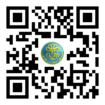Scientism Versus Integrated Learning
Blaise Pascal (d. 1662) was a French mathematician, scientist and inventor. As a mathematician, he wrote on the subject of projective geometry, probability theory, and differential calculus. As a scientist, he made significant contributions to the study of fluids, the explanation of the concepts of atmospheric pressure and of vacuum. He was a pioneering inventor of the mechanical calculator, barometer, and syringe.
However, Pascal strongly opposed scientism, or the fallacy of believing that the method of science must be employed on all forms of human experience. Scientism also believes that natural sciences, given time, will solve just every issue faced by humanity.
Pascal’s thought indicated that in order to save humanity from scientism, there must be a proper appreciation of two basic types of mind: the geometrical mind (esprit géométrique) and the intuitive mind (esprit de finesse). While in essence the human mind remains one, a balance must be struck between these two contrasting directions that the mind can take.
It must be noted that in Islamic tradition, as represented for instance by Ibn al-‘Arabi (d. 1240), al-Sha‘rani (d. 1565) and al-Zabidi (d. 1791), there are three levels of knowledge, which are technically termed as knowledge of the intellect (‘ilm al-‘aql), knowledge of the states (‘ilm al-ahwal), and knowledge of the secrets (‘ilm al-asrar).
The first level of knowledge, the knowledge of the intellect, is whatever knowledge a person obtains either ‘necessarily’ or ‘in origination from his thinking’.
Knowledge obtained ‘necessarily’ refers to the most basic, intrinsic logical grounds of all reasoning, in which thing is known immediately ‘of necessity’ (daruratan), such as the principle of non-contradiction. It also further refers to the thing that is known self-evidently (badihatan), in such a way that it cannot possibly be refuted or rejected, such as that “one is the half of two”.
In the second case of thinking-originated knowledge, thing is known as a result of the person’s mental inquiry (nazar) concerning an evidence or proof (dalil)—provided that he discovers the probative aspect (‘uthur) of that evidence. The emphasis in this level is on the discursive mental processes of conceptual thinking (al-fikr) and mental inquiry, which can lead to all sorts of error. That is the reason why philosophers say about rational speculation that some of the arguments is sound (sahih) and some is invalid (fasid).
The second level of knowledge is called ‘ilm al-ahwal, which refers to the knowledge of the ‘state’, ‘condition’ or ‘case’ of a thing. Examples of this sort of knowledge are knowledge of the sweetness of honey, the bitterness of aloes, the pleasure of sexual intercourse, of excessive love (‘ishq), spiritual inner agitation (wajd), and passionate longing (shawq).
Such objects are known—and their knower is characterized as knowing them—only by ‘savouring’ or ‘tasting’ (dhawq), which is an experience directly known and verified. Otherwise, none can be said to have such knowledge; a rational person, for example, can know it neither by mere definition (hudud) nor by establishing conceptual proof.
The fact that this knowledge is a direct, experiential knowledge closes its possibility to be known in its real sense merely through verbal transmission or report, however extended the verbal discourses may be. In fact, an extensive explanation on this knowledge would only distort it. It is simply not possible for its taster to cause its non-taster to obtain it.
However, if at all there is any need to express it in a verbal manner (ta‘bir)—such as the need to instruct other person in this kind of knowledge—it would be sufficient to talk about it by employing allusion that points to what the knower has really ‘savoured’ or ‘felt’.
Error of the knowledge of states among ‘people of tasting’ (ahl al-dhawq) may be illustrated in the case of a person whose organs of taste are overcome by yellow bile, so much so that they found honey bitter-tasting, whereas it is not as such; what actually touches the organs of taste is the yellow bile and not the honey.
The third level of knowledge is ‘ilm al-asrar, which means knowledge of the secrets of things that are bestowed by Allah to true prophets and saints.
As such, Ibn al-‘Arabi points out that this is the knowledge that transcends the limit of knowledge attained by discursive thinking. This level of knowledge has been referred to by the Prophet Muhammad as the knowledge of “the inbreathing of the Holy Spirit [i.e., the Archangel Gabriel] in the heart”, a tradition cited by Dutch scholar Arent Jan Wensinck in his Concordance et indices de la tradition musulmane.
This writer can’t stress it enough: knowledge of the secrets is peculiar and privy to true prophets (sing. nabi) and genuine saints (sing. wali) only, which can’t be elaborated here due to limited space.
Three examples of knowledge of the secrets are the Prophet’s metaphysical statement that “Allah was, and nothing was with Him”; the Prophet’s saying with regard to the Day of Resurrection that “there is a pool in it sweeter than honey”; and God’s information to the Prophet on the actual existence of the Garden of Paradise and what is in it.
The ones who know ‘the knowledge of secrets’, the prophets and saints, are the wise people, who know all knowledge and comprehend all of them—such as the divine, natural, mathematical and logical sciences. “Hence,” states Ibn al-‘Arabi, “there is no knowledge nobler than this ‘all-encompassing knowledge’, which comprises the entirety of knowable things (al-hawi ‘ala jami‘ al-ma‘lumat).”




